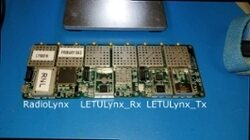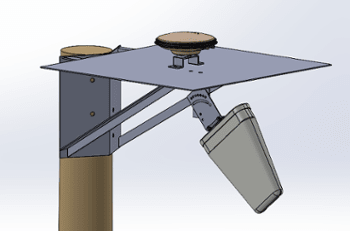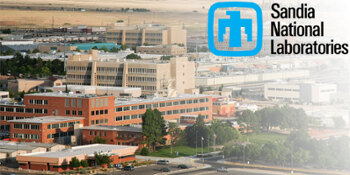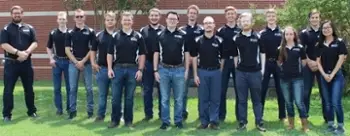FACULTY ADVISOR: DR. NATHAN GREEN
LEGRange is a 3-year GPS-centered project being funded by Sandia National Labs. The goal of the project is to create a GPS Constellation and place it on campus for the purpose of running over-the-air testing and evaluation of adversarial signals. Furthermore, there are yearly milestones to be met. In the first year, the team will construct the GPS constellation. This constellation will consist of four modified transmitters and one receiver. The transmitters will receive authentic GPS signal, clean the signal, and transmit it over the ISM band. The receiver will receive the authentic GPS signal and the emulated signals from our transmitters over the ISM band. Each device will leverage mature code provided through UT Austin's Radionavigation Lab in order to process signals. The team will use the second and third year to develop an adversarial GPS device, detector, and finally a device used for localizing adversarial devices. LEGRange is a highly anticipated project that will advance our research efforts in the field of defense.
Goal/objective of the project
In layman’s terms: We are building a test range and modifying software to analyze GPS security over-the-air without the need for a license or disrupting live GPS signals. Specifically: The goal of the 2020-2021 LEGRange team is to build an emulated GPS constellation designed to run over-the-air testing and evaluation of GPS adversarial signals in an open part of the RF spectrum using a team-designed attacker, two receivers, and six pseudolites.

Scope
The LEGRange project is a three-year project and is in its second year. During year one the team focused on designing the GPS constellation consisting of a GPS Software Defined Receiver (SDR) and six GPS pseudolites. During year two the team is focusing on implementing the range and creating an emulated spoofer that will broadcast a deceptive signal into the test range. During the third and final year, the team will focus on building spoofer-localization receivers to provide insights into the relatively unexplored wireless characteristics of GPS attackers. The project will be used by Sandia National Labs to accelerate research in GPS defense. Because this technology is the first of its kind, the impact of this project is predicted to be of great magnitude.
Application
The LEGRange team will apply concepts from mechatronics, analog and digital communications, embedded systems, estimation, programming, electromagnetics, and research to meet the immensely challenging requirements requested.

Professional sponsors
Sandia National Labs

Team members (major, roles in the team, advisors)

Dr. Nathan Green, Co-PI and Dr. Joonwan Kim, Co-PI
Allen Morrison, EE, Team Lead, Aaron Wells, MJE, Mechanical Team Lead, Blake Baker, EE & ME, Hardware Team Lead, Christian Lane, CpE, Software Team Lead, Daniel Payne, ME, Mechanical/Software Team, Tarina Naude, ME, Mechanical Team, Trevor Larter, Junior ME, Mechanical Team, Luke Avent, Junior EE, Hardware Team, Michael Dominguez, CSE, Software Team, Anna Okamura, EE, Hardware Team, Devon Cuperus, Junior EE, Hardware Team, Joey Herguth, EE, Hardware Team, Noah Chalker, ETAS, Hardware Team, and Stone Ricks, Junior EE, Hardware Team
Here is your chance to learn from the best, work on the cutting edge of technology, and get that dream job. Come join us at LeTourneau University. Interested in applying to LeTourneau University click here for an admission application or contact admissions at: 1 800.759.8811.
If you are interested in learning more about this senior design project contact:
Contact info
If you would like to donate to help support this team please donate at. Donate to LeTourneau University